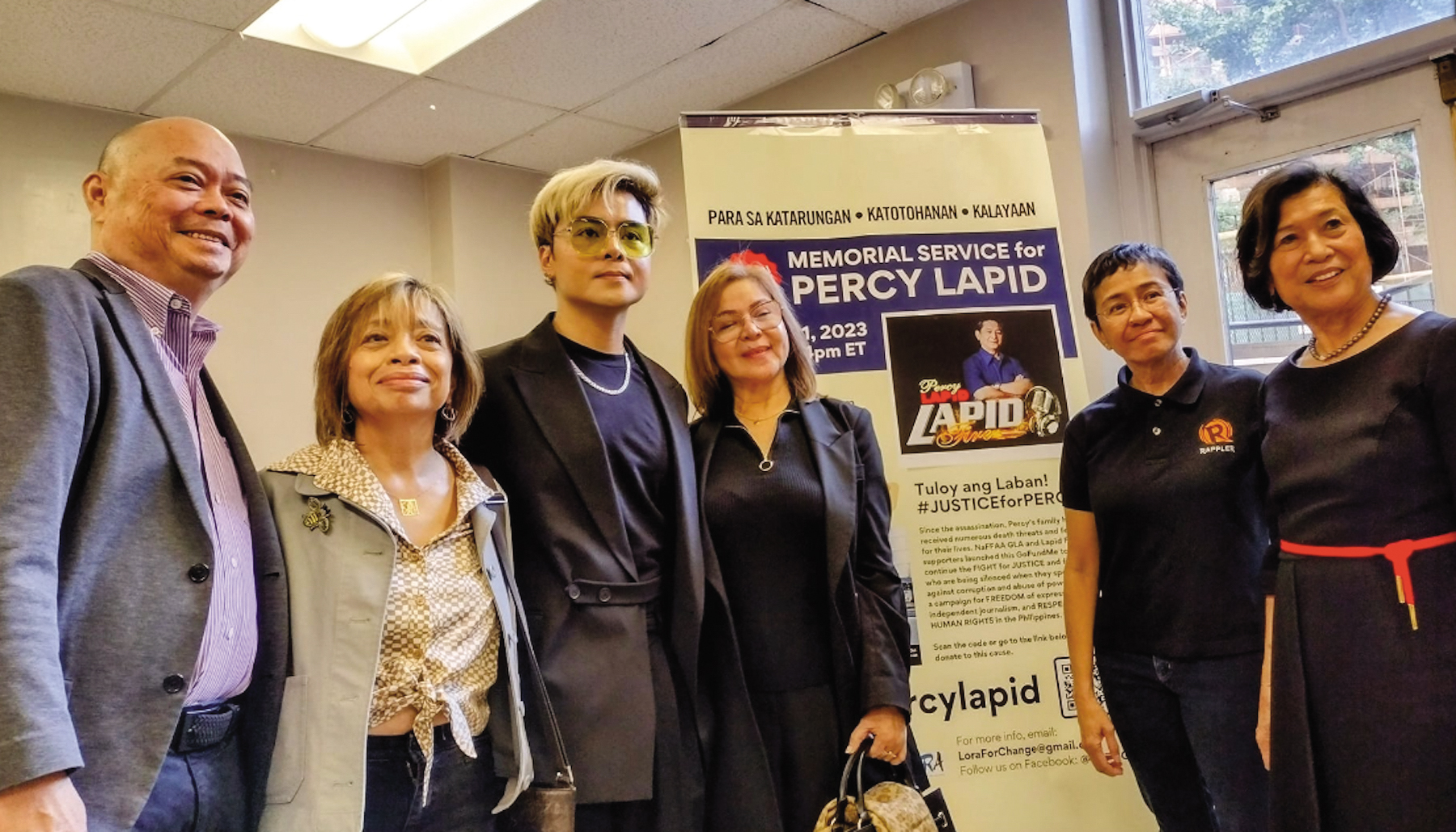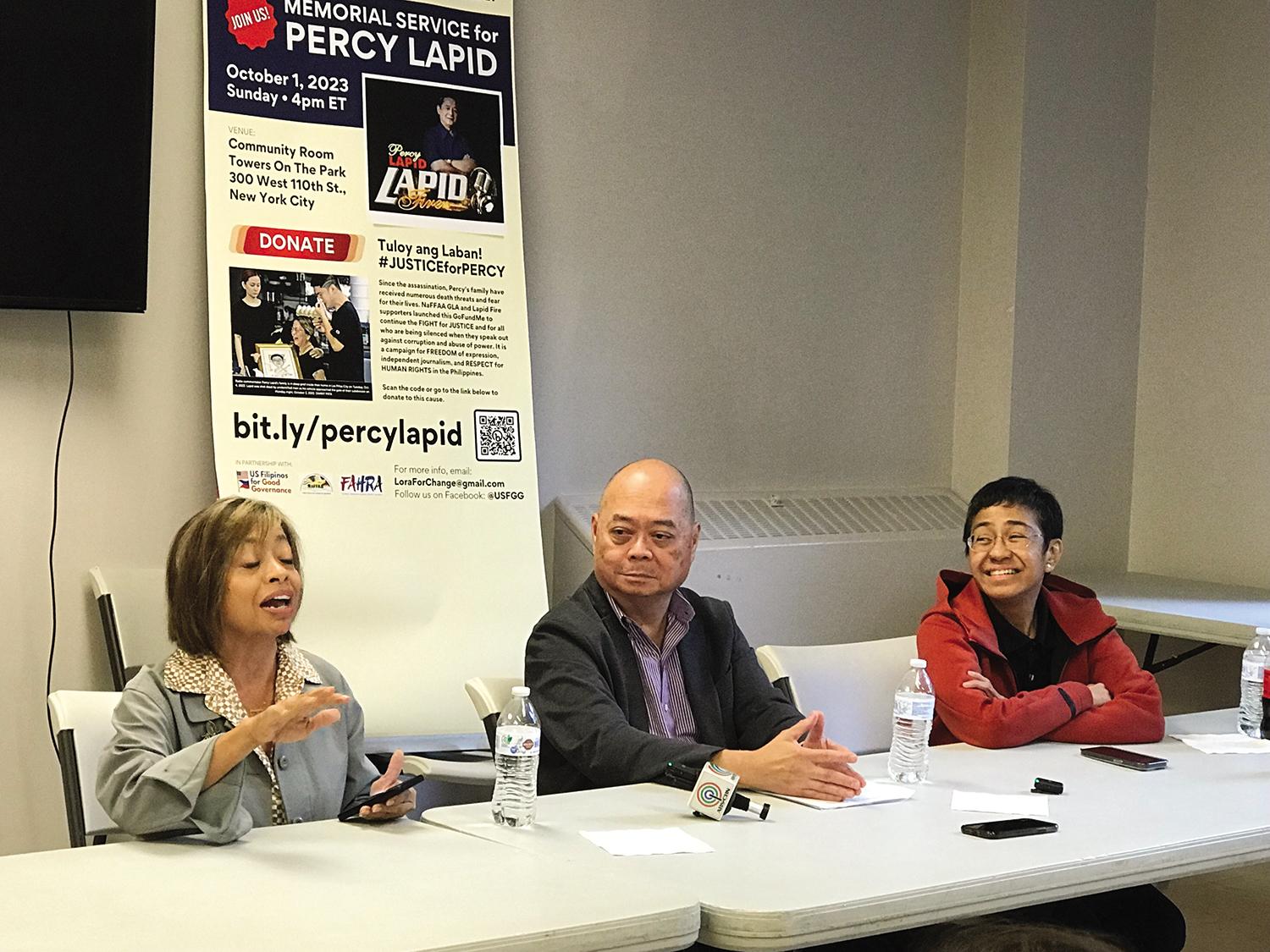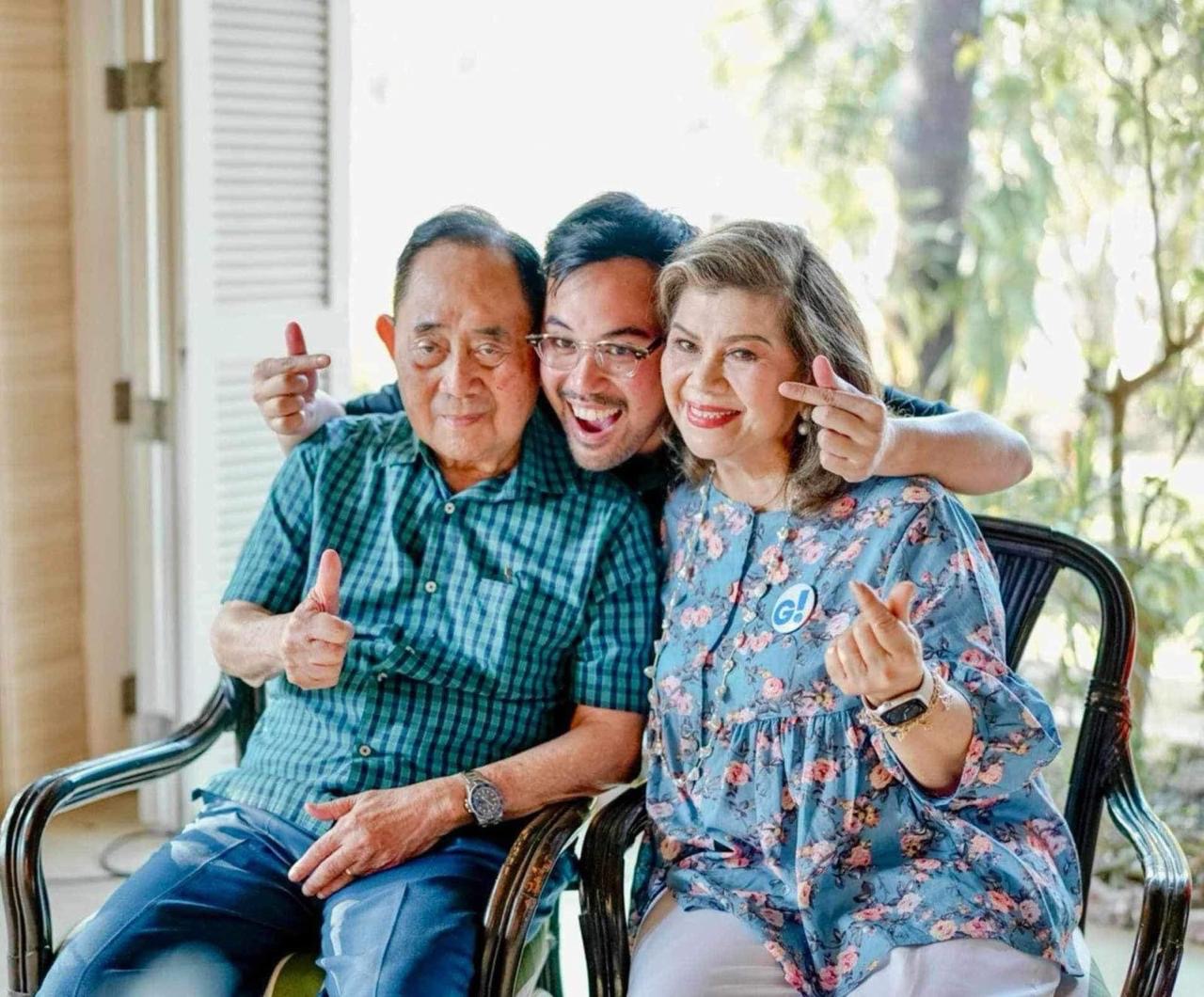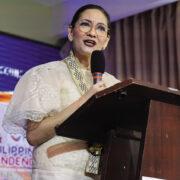
PERCY Mabasa, known by his broadcast name Percy Lapid, was an unwavering radio broadcaster who dedicated 35 years of his life to exposing corruption among the powerful. Thousands of listeners tuned in to his program, drawn by his fearless opinions. A year ago, he was shot dead on his way home and his death serves as a grim reminder of the ongoing assault on freedom of expression in the Philippines.
The National Union of Journalists of the Philippines (NUJP) and Rappler have documented the deaths of 198 journalists in the country since 1986, all targeted due to their commitment to their profession. Notably, during Gloria Macapagal Arroyo’s presidency, 103 journalists lost their lives, with 32 of them falling victim to the Maguindanao massacre. Under President Ferdinand Marcos Jr.’s administration, three journalists, including Percy Lapid, were killed.
Fearing for their lives after receiving threats, Percy Lapid’s 14-member family sought refuge in the United States, believing that the current Philippine administration couldn’t ensure their safety.
In a memorial service on Sunday, October 1, Percy Lapid’s friends and supporters gathered in Los Angeles and New York to commemorate his life and his stance against injustice and corruption.
Among those in attendance in New York were notable personalities such as Maria Ressa, Sheila Coronel, Noel Pangilinan, Loida Nicolas Lewis, Liza and Mark Mabasa, Percy’s widow and son.

Mark Mabasa, in a poignant speech, shared updates on his father’s case and decried the indiscriminate killings that seem to hold no value for human life, especially among journalists dedicated to informing the public.
“Aminin man natin o hindi, kumibo man tayo o hindi, hindi natin maitatanggi ang kaliwa’t kanan at walang habas na pagpaslang na tila wala ng halaga ang buhay ng tao, lalo na sa mga mamamahayag na ang ginagawa lamang ay maipaabot sa ating mga mamamayan at mamulat sa katotohanan buhat pa ng nakaraang administrasyon,” he said. (Whether we admit it or not. Whether we move or not. We cannot deny the left and right and indiscriminate killings that seem to have no value to human life, especially to journalists who are only doing things to reach our people and make them aware of the truth since the previous administration.)
Columbia University’s School of Journalism professor Sheila Coronel echoed this sentiment, saying that the culture of impunity runs deep in the Philippines, citing the names of some journalists who were killed in the line of duty.
“Impunity is so deeply embedded in the Philippines. We must think that we build democracy and democratic institutions, brick by brick, case by case,” Coronel said. “The obstacles to justice are formidable, but we have a few victories – Ampatuan; half victories – Marlene Esperat, Edgar Damalerio, even if they’re incomplete, they show that impunity need not be the norm. Justice is attainable if we fight for it.”
Something that Nobel Prize winner Maria Ressa agreed with, and promised the Mabasa family support in fighting for justice.
“Marlene Esperat is a name our generation of journalists won’t forget. We will help make Percy Lapid, Percy Mabasa, a name just this generation won’t forget,” Ressa said.
As Mark reflected on his father as a devoted family man, husband, and father of six, he expressed deep sorrow that Percy’s cherished profession and beloved homeland became the very reason for his tragic demise. He talked about some of the lessons his father taught them.
“Sa iniwang aral ng aming ama, “Ang pagsasabi ng katotohanan ay hindi itinuturing na katapangan, kung hindi obligasyon ng bawat isa sa atin” at sa aming puso, alam namin na nagawa nya ang tungkulin niya sa bayan,” the young Mabasa said, controlling his emotions. (The lesson left by our father, “Telling the truth is not considered courage, it is the obligation of each of us” and in our hearts, we know that he has done his duty to his country.)
“Kapag nakikita mong mali, dapat sitahin mo, hindi para pulaan kung hindi para magkaroon pa ng pagkakataon na maitama ito,” he recounted, echoing his father’s core belief that had driven him throughout his career. (When you see something wrong you should point it out not to criticize but to have a chance to correct it.)
He also shared that his uncle Roy Mabasa had a meeting with the United States Ambassador to the Philippines MaryKay Carlson, and they talked about the unresolved nature of Percy’s case, emphasizing the critical need for media freedom and protection.
The ambassador took to X (formerly Twitter) to express her frustration, declaring, “Nearly one year later, Percy Lapid’s case remains UNRESOLVED. Journalists deserve to do their work free of violence, intimidation, and harassment.”
The discussion also focused on the state of press freedom in the Philippines, where journalists continue to face unprecedented threats and dangers.
Noel Pangilinan, a professor at the College of Mount Saint Vincent, cited reports that the Philippines ranks as the seventh most dangerous country for journalists globally, where 85 journalists have been killed with impunity between 1992 and 2021. From September 2012 to August 2022, 14 cases of murdered journalists remained unsolved, leaving perpetrators free to roam.
Speaking from her experience as a journalist in the Philippines, Coronel talked about two high-profile cases, Marlene Esperat and Edgar Damalerio. Esperat was a chemist turned journalist, who dared to expose rampant corruption within the Department of Agriculture. Marlene’s investigation revealed that a staggering 60% of funds allocated to aid impoverished farmers were lining the pockets of unscrupulous officials.
Edgar Damalerio, a radio host and newspaper editor in Pagadian, faced a similar fate. His unrelenting pursuit of justice led him to uncover the embezzlement of substantial funds meant for a bridge project. This revelation enraged those in power, culminating in his targeted assassination in 2002.
Coronel underscored that achieving justice is a laborious process, often fraught with roadblocks. Even with public pressure, it took three years to apprehend Edgar Malaria’s killer. In the infamous Ampatuan massacre case, where 32 journalists fell victim to a powerful political clan, justice took a staggering ten years to be served.
As the panel discussion concluded, Ressa posed a thought-provoking question to the audience, the same one she asks in her book ‘How to Stand Up to Dictators’.
“The question that I asked in the book is a simple one that I will ask every single person in this room. Simple question. What are you willing to sacrifice for the truth?” Ressa said. “Because ultimately, if we don’t have that, we have nothing.”
For his part, Mabasa concluded his talk by asking the audience to join their family in their quest for justice.
“Kung meron man kaming hihilingin sa inyo, iyon ay ang samahan kami sa laban na ito. Dahil alam natin na hindi magpapatuloy ang aksyon ng gobyerno kung walang sigaw ng Hustiya para kay Percy Lapid at sa lahat ng mamamahayag na walang awang pinaslang,” he said. “Hindi titigil ang pagpatay kung hindi mahuhuli ang mga makapangyarihang mamamatay tao. Muli naming ipinaaalaala na wag naman sana maibilang lamang sa istatistiko ang nangyari sa aming ama. Tulungan niyo po kami na makamit ang hustisya.” (If there is anything we ask of you, it is to join us in this fight. Because we know that the government’s action will not continue without the cry of Justice for Percy Lapid and all the journalists who were mercilessly murdered. The killings will not stop unless the powerful killers are caught. We hope that our father’s death will not just become part of statistics. Please help us achieve justice.)
Community organizations such as the National Federation of Filipino American Associations (NaFFAA) and the U.S. Filipinos for Good Governance have set up a GoFundMe account to help support Mabasa’s family.





